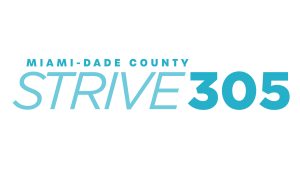|
Getting your Trinity Audio player ready...
|
By Irvans Augustin and Tico Casamayor
On June 13th, Florida Governor Ron DeSantis signed HB 683 into law. Among its notable provisions, the bill authorizes private providers to utilize automated or software-based review systems to assess compliance with building codes such as the National Electrical Code and the Florida Building Code.
What does this mean for Floridians? In short, it signals a shift—allowing the private sector to outpace local governments in regulatory innovation. Private providers, already competitors to local building departments, now have a technological edge backed by state law. This move encourages faster, more efficient plan reviews that could help reduce bottlenecks in permitting processes.
However, local innovation is not standing still. In Miami-Dade County, the Strive305Hub powered by Wells Fargo & the Miami Foundation, under the leadership of Anthony Bonamy, is ensuring the public sector keeps pace. Bonamy, recognized for his foresight and ingenuity, recently brokered a pilot partnership between the Strive305Hub and CodeComply.Ai—an AI-driven platform specializing in code compliance reviews.
Thanks to this collaboration, entrepreneurs and small business owners in Miami-Dade now have access to free, AI-powered pre-screenings of their building plans. Yes, completely free.

Through this new initiative, users can visit Strive305Hub.com and upload their building plans. In return, they’ll receive a Readiness Report—a detailed review that identifies potential issues before the plans are officially submitted to local building departments. This tool empowers entrepreneurs to optimize their submissions and reduce costly delays.
While this tool is a product of the Strive305Hub initiative, it’s important to clarify that the report is not affiliated with, endorsed by, approved by, or reviewed by Miami-Dade County or any of its departments or agencies. The Readiness Report does not constitute an official plan review, approval, or permit, nor does it certify compliance with federal, state, or local codes. It is a preliminary resource only, and all findings must be independently reviewed and verified by a licensed design professional before being used for any formal purpose.
Despite these disclaimers, this pilot is a significant step forward for local governments seeking to embrace innovation. It demonstrates that technology can be leveraged not only by private providers, but also by civic initiatives committed to improving the experience of business owners and entrepreneurs.
With initiatives like this, local governments can remain competitive, responsive, and forward-thinking. The Strive305Hub’s partnership with CodeComply.Ai is more than just a pilot—it’s a powerful message: public sector innovation is not only possible, it’s happening right now.





